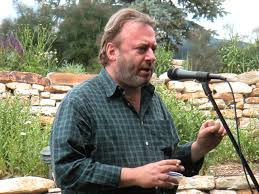Christopher Hitchens’ Prescription For An Ailing Planet

Christopher Hitchens’ prescription for an ailing planet
When discussing Christopher Hitchens’ prescription – or more accurately, prescriptions – for an ailing planet – the uniqueness of the thinker and author is almost impossible to ignore. Christopher Hitchens was one of a kind. Like Socrates, his faith in the power of the human mind marked him indelibly as someone whose point of view was a dependable source of enlightenment for all those who value reason.
A passion for honesty
A grand master of critical analysis, he could think on his feet with the utmost speed and dexterity, rebutting contrary points of view like an expert swordsman. His ability to hone in on the essence of an idea, coupled with his passion for intellectual honesty made his a voice one that will be sorely missed by those who believe that the free exchange of ideas is the tie that binds rational people – as well as the basis of a good life and a decent society
Hitchens was an Enlightenment figure
Hitchens was blessed (pardon the religious idiom) with global – if not more than global – consciousness. Born in England, he moved to the United States as an adult and became the embodiment of Jefferson’s ideal American…a world citizen whose reliance on reason and a sense of common humanity allowed him to demolish many a fraudulent claim and put many an egotist in his place.
Here is one of his more memorable paragraphs, in which he suggests a prescription for restoring psychic and moral health to a tired and ailing world:
Hitchens maintains “enlightenment now”
“Above all, we are in need of a renewed Enlightenment, which will base itself on the proposition that the proper study of mankind is man and woman [referencing Alexander Pope]. This Enlightenment will not need to depend, like its predecessors, on the heroic breakthroughs of a few gifted and exceptionally courageous people. It is within the compass of the average person. The study of literature and poetry, both for its own sake and for the eternal ethical questions with which it deals, can now easily depose the scrutiny of sacred texts that have been found to be corrupt and confected. The pursuit of unfettered scientific inquiry, and the availability of new findings to masses of people by electronic means, will revolutionize our concepts of research and development. Very importantly, the divorce between the sexual life and fear, and the sexual life and disease, and the sexual life and tyranny, can now at last be attempted, on the sole condition that we banish all religions from the discourse. And all this and more is, for the first time in our history, within the reach if not the grasp of everyone.”
From God Is Not Great ©2007 Hachette Book Group USA
Click below to buy the book now

